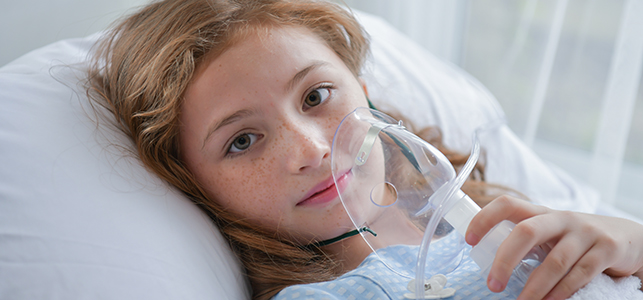
When and why are kids hospitalized with COVID-19
There’s a saying that the only constant in life is change. The same seems to be true with COVID-19. While kids were considered less susceptible to illness in the pandemic’s early days, the latest wave has shown that young people from birth through age 19 are experiencing transmission rates similar to those in the 20 to 39 age group according to an epidemiologist with the Virginia Department of Health.
Kids are not immune to COVID-19
These statistics began to shift over the summer and are likely due to an increase in interaction related to travel, sports, summer camps and back to school – in tandem with the highly transmissible delta variant. The Centers for Disease Control and Prevention shows that during the first week of October an average of 28 kids were hospitalized per day with COVID in the health region encompassing Delaware, District of Columbia, Maryland, Pennsylvania, Virginia and West Virginia.
Dr. Suzanne Lavoie, infectious diseases specialist, explains what these hospitalizations for kids with COVID look like.
What COVID symptoms signal a need for care in the hospital?
While most children can recover at home with supportive care and symptom management, some do need care in the hospital. Most often, COVID-related hospitalization for kids is due to pneumonia or multi-inflammatory syndrome in children. Pneumonia symptoms might include shortness of breath, low oxygen levels and fever. Kids with MIS-C may have diarrhea, fever, low blood pressure and/or elevated lab results. To diagnose MIS-C, we’re looking for involvement of at least two organ systems.
What’s involved in COVID-related care for kids in the hospital?
This depends on the exact symptoms and their severity. Hospitalizations can range from treating severe symptoms with steroids and oxygen, to the need for ECMO, a life-saving heart-lung bypass that gives the heart and lungs an opportunity to rest and recover.
We have also treated children with monoclonal antibodies, which has emergency use authorization for children 12 years and older and who weigh at least 88 pounds. This isn’t a common course of treatment but can be beneficial for kids who are immunocompromised or at high risk for progressing to severe illness.
Treatment may include specialists from pulmonary medicine, infectious diseases, cardiology, nephrology, neurology, hospital medicine, critical care medicine and gastroenterology – in addition to nursing, respiratory therapy, physical therapy and support services in the hospital.
How long do kids typically have to stay in the hospital with COVID?
This too varies based on the child and symptoms. Kids who need only mild oxygen may go home within a few days, while those who require higher levels of oxygen up to intubation for breathing support could be in the hospital much longer. Children with MIS-C are typically in the hospital for one to two weeks.
What can be done to prevent severe COVID illness and the need for hospitalization?
Anyone who can get vaccinated should get vaccinated. The best way to protect kids younger than 5 who can’t yet get the vaccine is for the kids and adults around them to be vaccinated.
While the most recent surge appears to be waning, we don’t know what lies ahead or the impacts long COVID and other complications will have on children long-term. What we do know is that layered infection prevention measures continue to be important in staving off illness. This means masks, distancing, handwashing and, for all who are eligible, the vaccine.
